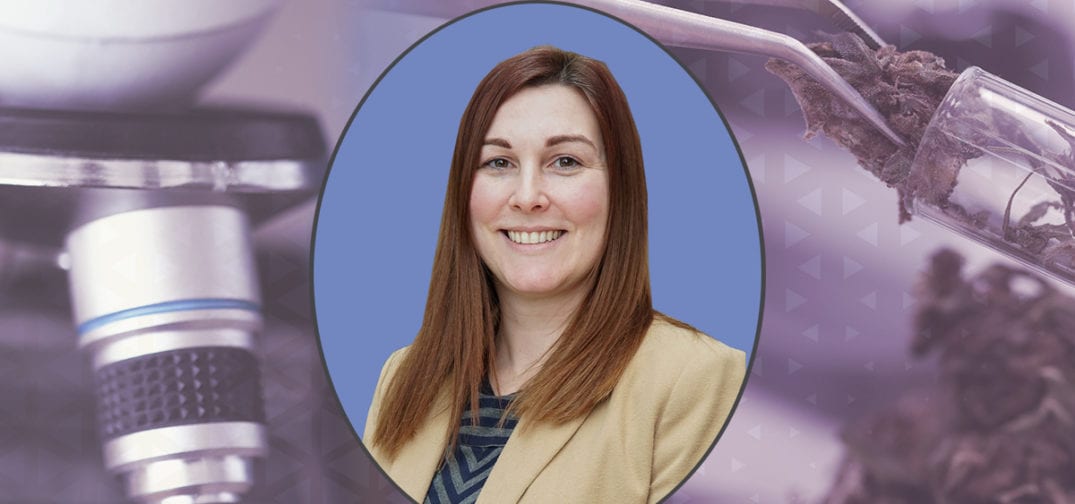Cannabis education has become a cornerstone of the modern industry, which now looks to the many schools, colleges, and universities that offer training for current and future cannabis professionals. From medical science to business analysis and more, educators are laying a foundation of highly qualified workers for the cannabis industry.
In this interview Q&A, we catch up with Dr. Sera to ask about the University of Maryland School of Pharmacy’s MS in Medical Cannabis Science and Therapeutics program. Launched last year, it was the nation’s first graduate program in medical cannabis science. Our interview covers the program’s goals and requirements, the likely career trajectories of students who complete the program, and more!
Ganjapreneur: What is the main goal of the Masters of Science in Medical Cannabis Science and Therapeutics program? How will this program serve graduates and their future patients?
Dr. Leah Sera: Our primary goal in developing this program, as with all our programs at the University of Maryland School of Pharmacy, is to improve care for patients. Our students come to us with many different academic and professional backgrounds, including science, healthcare, law, and public health, among others. The comprehensive education we provide in this program will prepare them to improve patient care both directly (for those working in clinical environments) and indirectly (for those interested in research or policy development).
What are the main requirements to be accepted into the program, and who is encouraged to apply?
We wanted to bring in as diverse a student body as possible, because we know that individuals with many different backgrounds play important roles in the medical cannabis industry. That’s why our only requirement is a Bachelor’s degree (or higher) from a regionally accredited institution, and why we don’t require incoming students to have a particular field of study or take prerequisite coursework. We teach all the basic science and clinical information as part of our program. Though most of the coursework is online, we do require students to travel to the Universities at Shady Grove in Rockville, MD once each semester for a day-long symposium that includes expert speakers as well as opportunities to network with industry professionals and connect with peers.
What types of career paths will this program prepare students for?
We anticipate that our graduates will be able to leapfrog over entry-level positions in the industry, and we also expect that our students will be trailblazers in creating new positions in the medical cannabis field, including in clinical practice, research and development, regulatory affairs, and patient advocacy. Graduates of our program will be equipped to educate patients, healthcare providers, policymakers, and the public on the science and clinical uses of medical cannabis. Depending on their academic and professional backgrounds, they may choose to work with patients directly or improve patient care through research, policy development, and advocacy.
How did the Pharmacology department formulate the curriculum for the program? What cornerstone textbooks, studies, and thought leaders are referenced in the material covered?
Our curriculum was developed with input from faculty in multiple departments in the School of Pharmacy, including pharmacologists, chemists, pharmaceutical scientists, and clinicians. Our content is based on evidence in the scientific and medical literature, and students are asked to critically evaluate clinical trials during their coursework.
Has the University experienced any pushback on the program, internally or externally, due to the federal prohibition of the plant?
We faced surprisingly few obstacles in getting the program approved and launching it last August. For the most part, everyone who played a part in reviewing, approving, and implementing the program was curious, interested, and invested in making it successful. We’ve had an incredibly positive and robust response from people in the medical cannabis field and from prospective students.
Will students in the program be conducting medical research?
Our institution is not currently doing cannabis research. We expect that as federal regulations on cannabis change, we will be able to expand our program in many different ways, including research.
How do you anticipate the program evolving and growing over time? As federal restrictions are lifted, do you believe more educational institutions will begin adding cannabis pharmacology into their offerings?
I think that we are already seeing more and more colleges and universities incorporate medical cannabis into their curricula, either by developing full programs or individual courses. We certainly plan to continue to innovate, evaluate, and expand our program. The field of medical cannabis is rapidly evolving, and the University of Maryland School of Pharmacy’s MS in Medical Cannabis Science and Therapeutics is ready to meet the challenge of evolving with it!
Thanks again, Dr. Sera, for answering our questions! Click here to learn more about the University of Maryland School of Pharmacy’s MS in Medical Cannabis Science and Therapeutics.
End
